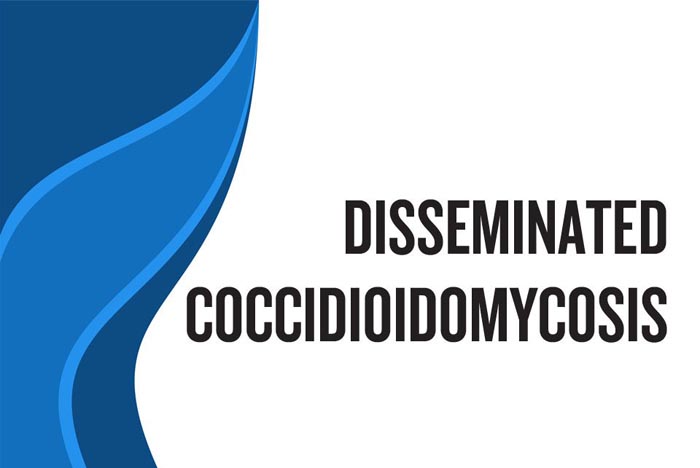
Coccidioidomycosis is a systemic mycosis characterized by primary pulmonary infection that usually spontaneously. Subsequently, It can disseminate hematogenously and result in chronic, progressive, granulomatous infection in skin, lungs, bone, meninges.
Causes of Disseminated Coccidioidomycosis
Spores inhaled, resulting in primary pulmonary infection that is asymptomatic or accompanied by symptoms of coryza. Failure to develop cellmediated immunity is associated with disseminated infection and relapse after therapy.
Symptoms of Disseminated Coccidioidomycosis
Symptoms include fever, joint pain, loss of appetite, weight loss, night sweats, skin lesions, and difficulty breathing. Also, in 30-50% of patients with disseminated coccidioidomycosis, the tissue coverings of the the brain and spinal cord become inflamed (meningitis).
Diagnosis
Detection of C. immitis sporangia containing typical sporangiospores in sputum/pus; culture; skin biopsy.
Treatment
Systemic Antifungal Therapy Non-Life-Threatening Infection Fluconazole, 200-400 mg/d, or itraconazole.
Life-Threatening Infection Amphotericin B deoxycholate.
Secondary Prophylaxis Lifelong therapy for meningeal infection may be required and is required in HIV disease.
Prevention
Because the fungus that causes coccidioidomycosis is airborne and microscopic, the only method of prevention is to avoid visiting areas where it is found in the soil. Unfortunately, for many people this is impractical. Prevention of AIDS or other causes of impaired immune system will generally prevent the more severe forms of the disease.
References